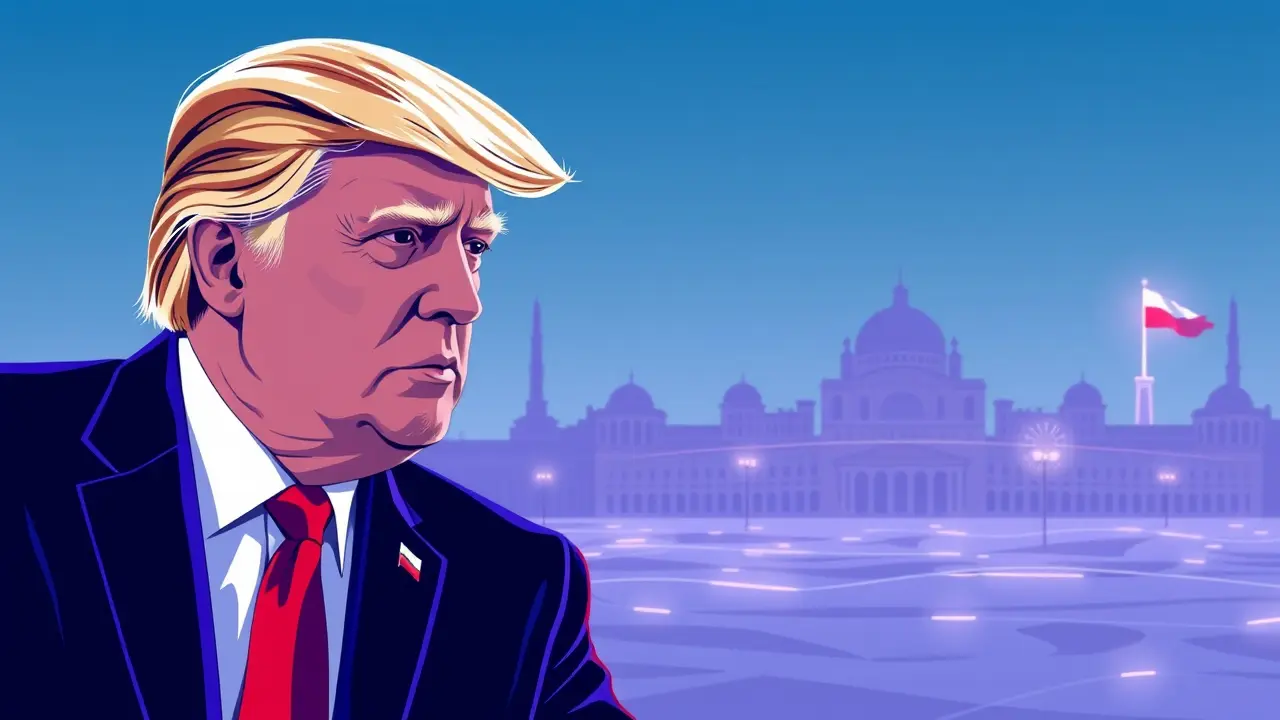Trump's Gaza Ceasefire Role Deemed Decisive But Not A Peace Roadmap
The recent diplomatic foray by former President Donald Trump into the Gaza conflict, while framed by his supporters as a decisive intervention, stands as a stark testament to the profound limitations of singular presidential will in the face of intractable geopolitical strife, a historical lesson that echoes from the halls of Versailles to the Camp David accords. To characterize this engagement as a victory lap, as some observers have, is to fundamentally misunderstand the layered complexities of the Israeli-Palestinian conflict, a quagmire that has consumed the energies of statesmen from Truman to Biden and defied the grand ambitions of countless roadmaps and peace processes.Trump's approach, reminiscent of a bygone era of great man theory diplomacy, posits that a strong leader can, through force of personality and transactional deal-making, impose order upon chaos; however, the annals of history, from Churchill's warnings about the 'unfolding of long histories' to the ultimately fragile peace brokered by Carter at Camp David, demonstrate that sustainable resolution is not a spectacle to be announced but a painstaking architecture built on mutual security, political legitimacy, and grassroots reconciliation. The ceasefire he championed, while potentially halting the immediate exchange of rockets and airstrikes, lacks the foundational pillars for enduring peace: it does not address the core issues of Hamas's governance in Gaza, Israel's long-term security doctrine, the humanitarian catastrophe unfolding in the strip, or the moribund two-state solution, leaving it as fragile as the 1994 ceasefire in Bosnia that merely froze the conflict lines rather than resolving them.Expert commentary from veteran analysts in Tel Aviv and Ramallah suggests this move is less a strategic masterstroke and more a tactical maneuver, recalibrating the regional chessboard ahead of future electoral contests and seeking to overshadow the current administration's foreign policy, a playbook familiar to students of Nixon's Vietnam strategy or Reagan's Cold War posturing. The consequences of such a high-profile, yet substantively shallow, intervention are multifaceted: it potentially undermines the official channels of the sitting U.S. administration, complicates the delicate negotiations being handled by Egyptian and Qatari intermediaries, and offers a temporary reprieve that allows combatants to rearm and regroup, much like the lulls that preceded the 1967 and 1973 wars.A deeper analytical insight reveals that the true roadblock is not a lack of decisive actors but a structural deficit of trust and a failure to cultivate the political and civil society infrastructure necessary for coexistence; as any serious student of conflict resolution would attest, a lasting peace is not declared from a podium but is painstakingly woven from the threads of economic cooperation, shared narratives, and security guarantees that are mutually, not unilaterally, enforced. Therefore, while Trump's role may have been decisive in pausing the current bout of violence, to mistake this for a roadmap is to confuse the opening act of a prolonged drama for its final curtain, a dangerous oversimplification in a region where the ghosts of unresolved pasts perpetually haunt the present.
Latest News
The charts are whispering what the true believers have felt in their bones for weeks—Dogecoin is carving out a bottom.
17 hours ago5 comments
The Institute for Fiscal Studies has thrown a stark warning onto Rachel Reeves's desk, urging the Chancellor to confront a potential £22 billion shortfall in
17 hours ago3 comments
Alright, let's break down this absolute heater of a performance from the Chicago Blackhawks, because if you missed this one, you missed a party.
18 hours ago5 comments
The ice was hot last night in the NHL, folks, serving up a slate of games that felt less like a regular season Tuesday and more like a playoff preview with a
18 hours ago3 comments
The XRP chart is painting a tantalizing picture for those with the stomach to withstand the relentless pressure from crypto's leviathans.
18 hours ago4 comments
It’s in the small shifts, the quiet recalibrations of a Thursday morning, where the most meaningful change often takes root.
18 hours ago4 comments
In a move that sent ripples of quiet confidence through the crypto ecosystem, blockchain intelligence firms tracked a monumental treasury allocation from
18 hours ago4 comments
In a move that would have drawn a nod of approval from historical figures like Churchill, who understood the delicate balance of power within democratic
18 hours ago2 comments
JA
Jamie Larson123k24 hours ago
idk this whole thing just feels like political theater tbh like does anyone actually believe a ceasefire will last without dealing with the real issues smh
0
JA
Jamie Wilson123k1 day ago
tbh reading this just makes me think of all the times we've seen this before it's just so frustrating
0
JA
Jamie Larson123k1 day ago
wait what so this is all just for show then? tbh idk why i'm even surprised smh
0
MA
Maya Thorne123k1 day ago
reading this at 3 am and it all feels like a metaphor for something... or maybe i just need sleep idk
0
CH
Chloe Miller123k2 days ago
idk it feels like we've seen this movie before and it never has a happy ending maybe they should just let the people who live there figure it out
0
